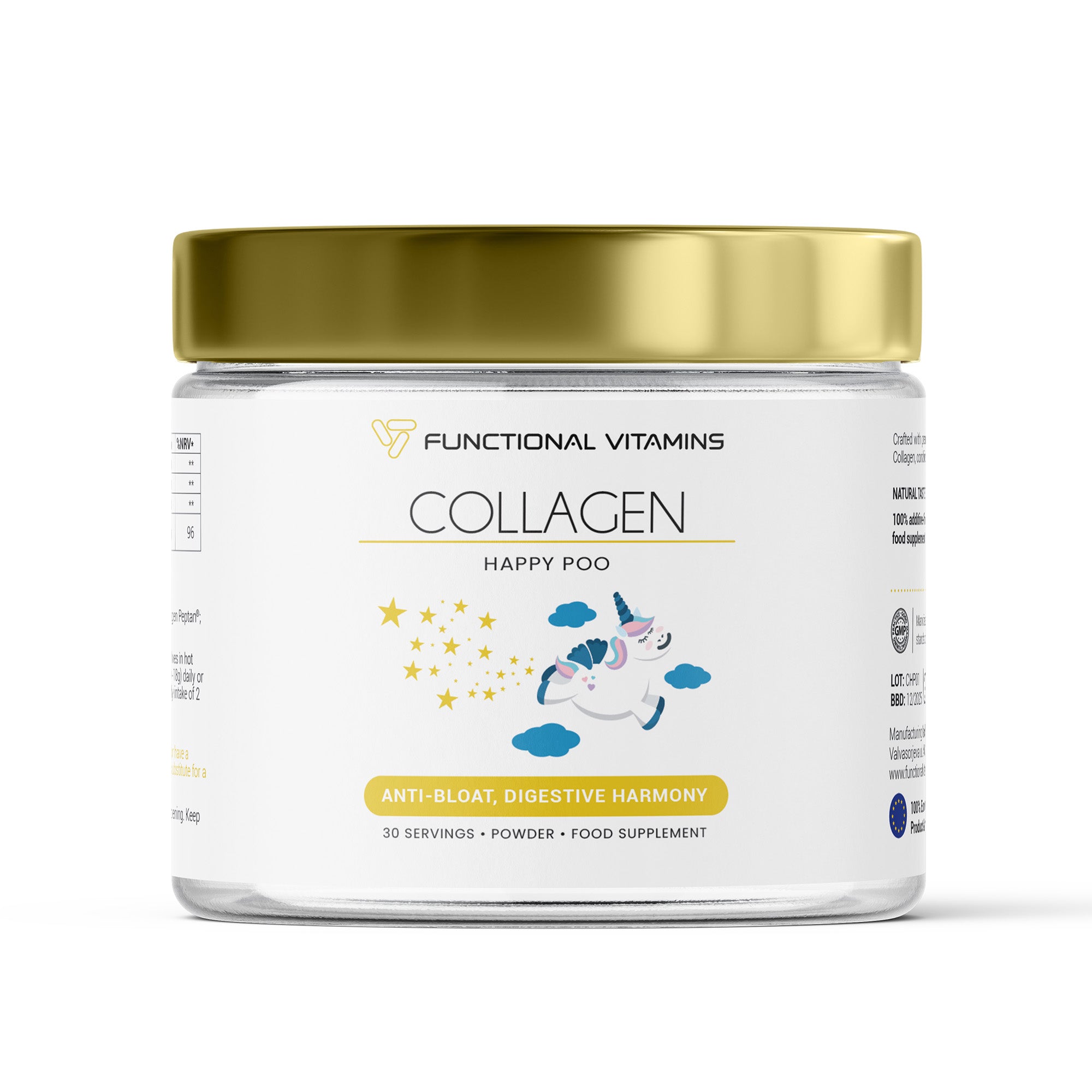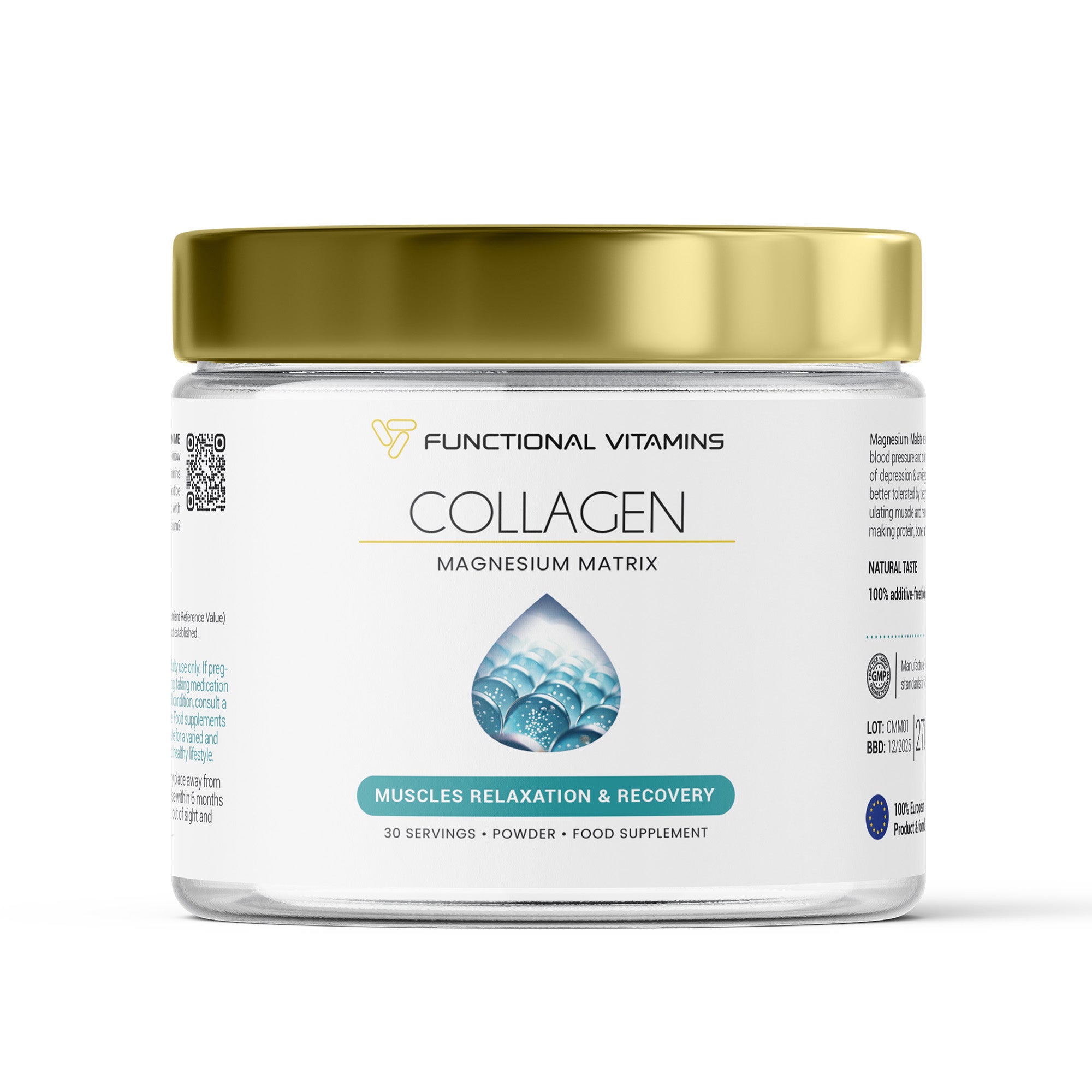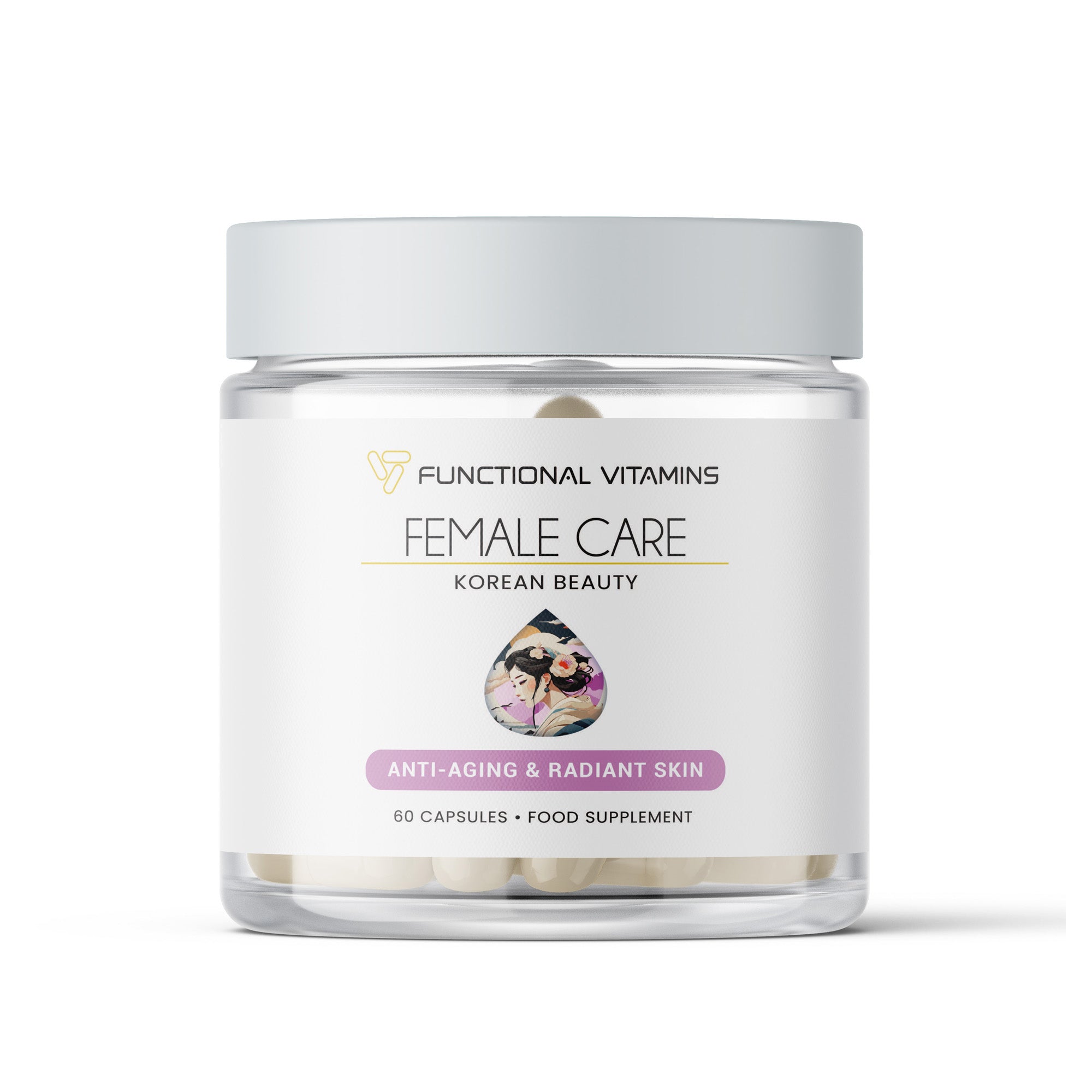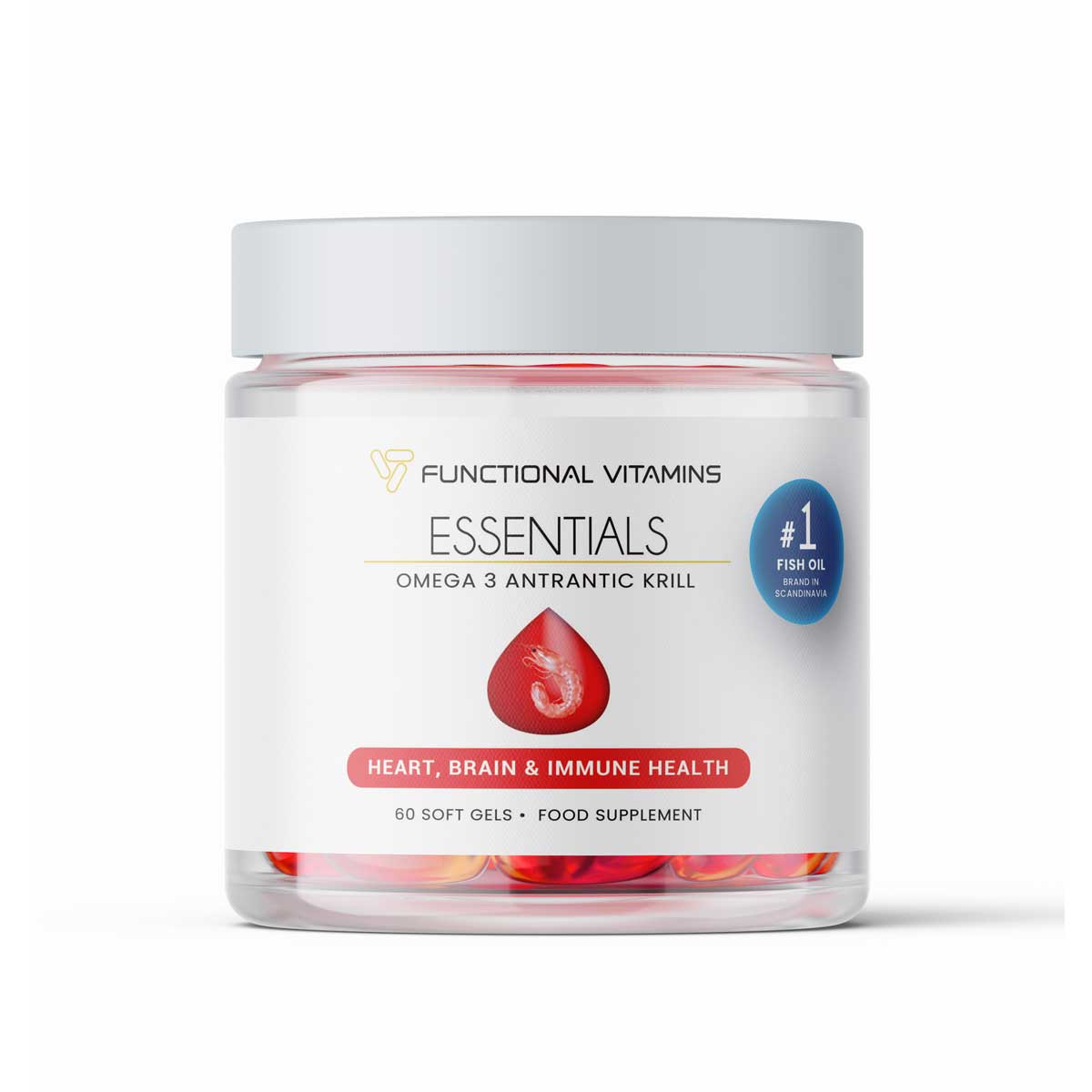Discover the Magic: Unveiling the Science Behind Collagen, Magnesium, and Chocolate for Your Health and Wellness Journey
In the quest for wellness, the natural world offers a plethora of solutions. Among them, collagen, magnesium, and chocolate stand out not only for their delectable nature but also for their scientifically-backed health benefits. Let's delve into their remarkable properties:
1. Peptan® Collagen Bovine: The Elixir of Youthful Vitality
Collagen, a primary protein in our bodies, plays a pivotal role in maintaining skin elasticity, joint health, and bone strength. But did you know about its multi-faceted benefits?
Youthful Glow: Renowned studies like those by Asserin et al., 2015, and Gniadecka, 1998, have underscored collagen's ability to boost skin hydration, elasticity, and structure. The result? Reduced signs of aging, from pesky wrinkles to fine lines.
Strength from Within: Beyond skin, Peptan® bolsters joint and bone health. Guillerminet et al., 2010, and Daneault et al., 2014, validate its prowess in fortifying cartilage and enhancing bone density, marking a significant stride in osteoporosis prevention.
2. Magnesium Malate: The Calm Mineral
Magnesium, a silent guardian of our well-being, plays a crucial role in myriad bodily functions. Magnesium Malate, in particular, stands out:
Digestive Harmony: Marta R. et al., 2021, elucidate its gentle absorption, ensuring a comfortable experience for our digestive system.
Wellness Woven Together: From heart health, relaxation, to quality sleep, magnesium malate is a holistic wellness maestro, as corroborated by studies like Remi Fritzen et al., 2023.
3. Chocolate: Nature's Indulgent Health Potion
Often viewed as a guilty pleasure, chocolate, especially its darker variants, unveils a treasure trove of health benefits:
Antioxidant Arsenal: With its rich flavonoid content, dark chocolate combats oxidative stress, championing heart health, as detailed by Laura S. Latham PharmD et al., 2013.
Mood Muse: Beyond its luscious taste, chocolate has been celebrated for its mood-enhancing properties, with studies like those by Kristen Bruinsma Ms et al., 1999, spotlighting its role in cognitive function elevation.
Brain and Heart Harmony: From cognitive vitality to cardiovascular support, chocolate, when consumed in moderation, promises a symphony of health benefits, an assertion supported by studies spanning Roya Kelishadi, 2005, to Terence Yew Chin Tan et al., 2021.
In Conclusion: Nature's bounty, as exemplified by Peptan® Collagen Bovine, Magnesium Malate, and Chocolate, offers a harmonious blend of taste and well-being. Yet, as with all health pursuits, individual nuances matter. It's always judicious to embark on any wellness journey armed with knowledge and professional guidance. Embrace these natural wonders and step into a realm of enhanced vitality!
Clinical Studies
Magnesium Malate
Marta R. et al. 2021. Bioavailability of magnesium food supplements: A systematic review. Nutrition. Volume 89, September 2021, 111294.
https://www.sciencedirect.com/science/article/abs/pii/S0899900721001568
Nazan Uysal, et- al. 2019. Timeline (Bioavailability) of Magnesium Compounds in Hours: Which Magnesium Compound Works Best? Springer. 2018. Volume 187, pages 128–136, (2019).
https://link.springer.com/article/10.1007/s12011-018-1351-9
Remi Fritzen, et al. 2023. Magnesium Deficiency and Cardiometabolic Disease. Nutrients 2023, 15(10), 2355.
https://www.mdpi.com/2072-6643/15/10/2355
Mellitus Richard Evers Katholi, Marcella Rene Ervin Prairie. 2023. Metabolic and Renal Protective Benefits of Magnesium Supplementation in the Long-Term Management of Patients with Type 2 Diabetes. Journal of Diabetes Mellitus. Vol.13 No.2. https://www.scirp.org/journal/paperinformation?paperid=124800
Lei Fan,et al. 2022. Ca:Mg ratio, medium-chain fatty acids, and the gut microbiome. Clinical Nutrition. Volume 41, Issue 11, November 2022, Pages 2490-2499.
https://www.sciencedirect.com/science/article/abs/pii/S0261561422003259
Franziska Bürkle, et al. 2021. New perspectives for investigating muscular perfusion response after dietary supplement intake: an exploratory, randomized, double-blind, placebo-controlled crossover trial in healthy young athletes using contrast-enhanced ultrasound (CEUS). Journal of the International Society of Sports Nutrition. Volume 19, 2022 - Issue 1. Pages 397-416.
https://www.tandfonline.com/doi/full/10.1080/15502783.2022.2097018
Lippi, L., Uberti, F., Folli, A. et al. 2022. Impact of nutraceuticals and dietary supplements on mitochondria modifications in healthy aging: a systematic review of randomized controlled trials. Aging Clin Exp Res 34, 2659–2674 (2022). https://doi.org/10.1007/s40520-022-02203-y
Kumar, N., Thorat, S.T., Patole, P.B. et al. Protective role of selenium and selenium-nanoparticles against multiple stresses in Pangasianodon hypophthalmus. Fish Physiol Biochem (2023). https://doi.org/10.1007/s10695-023-01231-3
Derek R. Case, Jon Zubieta, Ren Gonzalez, Robert P. Doyle, Synthesis and Chemical and Biological Evaluation of a Glycine Tripeptide Chelate of Magnesium, Molecules, 10.3390/molecules26092419, 26, 9, (2419), (2021). https://efsa.onlinelibrary.wiley.com/doi/full/10.2903/j.efsa.2018.5292
Decker Weiss , Debra K. Brunk & Dennis A. Goodman (2018) Scottsdale Magnesium Study: Absorption, Cellular Uptake, and Clinical Effectiveness of a Timed-Release Magnesium Supplement in a Standard Adult Clinical Population, Journal of the American College of Nutrition, 37:4, 316-327, https://www.tandfonline.com/doi/full/10.1080/07315724.2017.1398686
Luisa E. Basso, Johan B. Ubbink, Rhena Delport. 2000. Erythrocyte magnesium concentration as an index of magnesium status: a perspective from a magnesium supplementation study. Clinica Chimica Acta. Volume 291, Issue 1, 20 January 2000, Pages 1-8.
https://www.sciencedirect.com/science/article/abs/pii/S0009898199001680
Ates, M., Kizildag, S., Yuksel, O. et al. 2019. Dose-Dependent Absorption Profile of Different Magnesium Compounds. Biol Trace Elem Res 192, 244–251 (2019). https://doi.org/10.1007/s12011-019-01663-0
Rebecca Costello, Andrea Rosanoff, Forrest Nielsen, Christina West. 2023. Perspective: Call for Re-evaluation of the Tolerable Upper Intake Level for Magnesium Supplementation in Adults. Advances in Nutrition. Volume 14, Issue 5, September 2023, Pages 973-982.
https://www.sciencedirect.com/science/article/pii/S2161831323013352
Neil Bernard Boyle,Clare Lawton and Louise Dye. 2017. The Effects of Magnesium Supplementation on Subjective Anxiety and Stress—A Systematic Review. School of Psychology, University of Leeds, Leeds LS2 9JT, UK. Nutrients 2017, 9(5), 429.
https://www.mdpi.com/2072-6643/9/5/429?ref=circle-magazine-health-wellness-genetics-blog
Chocolate
Laura S. Latham PharmD, Zeb K. Hensen MD, Deborah S. Minor PharmD. 2013. Chocolate—Guilty Pleasure or Healthy Supplement? Volume16, Issue2. February 2014. Pages 101-106.
https://onlinelibrary.wiley.com/doi/full/10.1111/jch.12223
Paulinna Faccinetto-Beltrán, Andrea R. Gómez-Fernández, Arlette Santacruz, Daniel A. Jacobo-Velázquez. 2021. Chocolate as Carrier to Deliver Bioactive Ingredients: Current Advances and Future Perspectives. Foods 2021, 10(9), 2065. https://www.mdpi.com/2304-8158/10/9/2065
Kristen Bruinsma Ms, Douglas L. Taren PhD. 1999. Chocolate: Food or Drug? Journal of the American Dietetic Association. Volume 99, Issue 10, October 1999, Pages 1249-1256.
https://www.sciencedirect.com/science/article/abs/pii/S0002822399003077
Roya Kelishadi. 2005. Cacao To Cocoa To Chocolate: Healthy Food? ARYA Atherosclerosis. Volume 1, Issue 1 - Serial Number 1. https://arya.mui.ac.ir/article_10191.html
Hamed Kord-Varkaneh, Ehsan Ghaedi, Ali Nazary-Vanani, Hamed Mohammadi & Sakineh Shab-Bidar (2019) Does cocoa/dark chocolate supplementation have favorable effect on body weight, body mass index and waist circumference? A systematic review, meta-analysis and dose-response of randomized clinical trials, Critical Reviews in Food Science and Nutrition, 59:15, 2349-2362. https://www.tandfonline.com/doi/abs/10.1080/10408398.2018.1451820
Katelyn A. Born,Erin E. Dooley,P. Andy Cheshire,Lauren E. McGill,Jonathon M. Cosgrove,John L. Ivy. 2022. Chocolate Milk versus carbohydrate supplements in adolescent athletes: a field based study. Journal of the International Society of Sports Nutrition. Volume 16, 2019 - Issue 1. https://www.tandfonline.com/doi/full/10.1186/s12970-019-0272-0
Possemiers 1, M. Marzorati 1, W. Verstraete, T. Van de Wiele. 2010. Bacteria and chocolate: A successful combination for probiotic delivery. International Journal of Food Microbiology. Volume 141, Issues 1–2, 30 June 2010, Pages 97-103.
https://www.sciencedirect.com/science/article/abs/pii/S0168160510001200
Andrea T. Borchers, Carl L. Keen, Sandra M. Hannum, and M. Eric Gershwin. Cocoa and Chocolate: Composition, Bioavailability, and Health Implications. Journal of Medicinal Food. Vol. 3, No. 2Original Articles. https://www.liebertpub.com/doi/abs/10.1089/109662000416285
Nevzat Konar a, Omer Said Toker b, Sirin Oba c, Osman Sagdic. Improving functionality of chocolate: A review on probiotic, prebiotic, and/or synbiotic characteristics. Trends in Food Science & Technology. Volume 49, March 2016, Pages 35-44.
https://www.sciencedirect.com/science/article/abs/pii/S0924224415300297
Andrew Scholey, Lauren Owen. Effects of chocolate on cognitive function and mood: a systematic review. Nutrition Reviews, Volume 71, Issue 10, 1 October 2013, Pages 665–681.
https://academic.oup.com/nutritionreviews/article/71/10/665/1931144
The Health Effects of Chocolate and Cocoa: A Systematic Review
Terence Yew Chin Tan, Xin Yi Lim, Julie Hsiao Hui Yeo, Shaun Wen Huey Lee, Nai Ming Lai. 2021. Nutrients 2021, 13(9), 2909. https://www.mdpi.com/2072-6643/13/9/2909.
Peptan® Collagen Bovine
Postlethwaite, A. E., et al., 1978. Chemotactic attraction of human fibroblasts to type I, II, and III collagens and collagen-derived peptides. Proceedings of the National Academy of Sciences, 75(2), 871-875. doi:10.1073/pnas.75.2.871
Gniadecka, M., 1998. Water and protein structure in photoaged and chronically aged skin. Journal of the European Academy of Dermatology and Venereology, 11. doi:10.1016/s0926-9959(98)95059-0
Asserin, J. et al., 2015. The effect of oral collagen peptide supplementation on skin moisture and the dermal collagen network: evidence from an ex vivo model and randomized, placebo-controlled clinical trials. Journal of Cosmetic Dermatology, doi: 10.1111/jocd.12174
Guillerminet, F. et al., 2010, Hydrolyzed collagen improves bone metabolism and biomechanical parameters in ovariectomized mice: An in vitro and in vivo study. Bone, 46:827-834
Guillerminet, F. et al., 2012, Hydrolyzed collagen improves bone status and prevents bone loss in ovariectomized C3H/HeN mice. Osteoporosis International, 23(7):1909-1919
Daneault, A. et al., 2014, Hydrolyzed collagen contributes to osteoblast differentiation in vitro and subsequent bone health in vivo. Osteoarthritis and Cartilage, 22:S131
Daneault, A. et al., 2017, Biological effect of hydrolyzed collagen on bone metabolism. Critical Reviews in Food Science and Nutrition, 57(9):1922-1937
Hays N.P. et al., 2009, Effects of whey and fortified collagen hydrolysate protein supplements on nitrogen balance and body composition in older women. Journal of the American Dietetic Association, 109:1082-1087.
Jiang J.X. et al., 2014, Collagen peptides improve knee osteoarthritis in elderly women: A 6-month randomized, double-blind, placebo-controlled study. Agro FOOD Industry Hi Tech 25: 19-23
Dar, Q. et al., 2017. Daily oral consumption of hydrolyzed type 1 collagen is chondroprotective and anti-inflammatory in murine posttraumatic osteoarthritis. PLoS ONE 12(4):e0174705
Jiang J.X. et al., 2014, Collagen peptides improve knee osteoarthritis in elderly women: A 6-month randomized, double-blind, placebo-controlled study. Agro FOOD Industry Hi Tech, 25:19-23.












Leave a comment
This site is protected by hCaptcha and the hCaptcha Privacy Policy and Terms of Service apply.